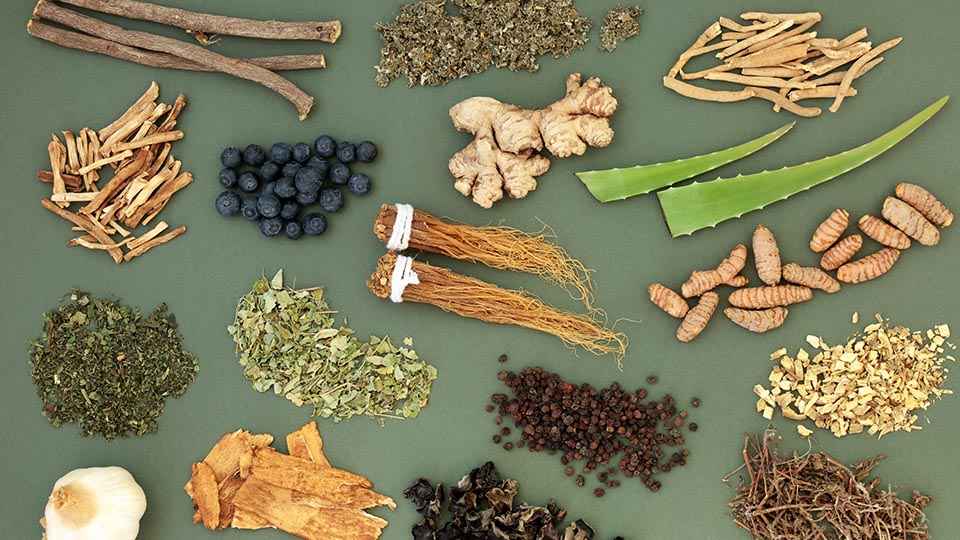Using plants as medicine has been around since the dawn of humankind. While our ancestors learned about the health effects of various flora through trial and error over many millennia, ancient healers, such as those in China and the Indian subcontinent, formalized that knowledge and passed it down through generations. Ginseng, for example, has been revered as a longevity tonic for more than four thousand years. As civilization progressed, herbal folk medicine—using plants to prevent or treat illness—was turned into a science.
In 1947 a Russian toxicologist named Nikolai Lazarev was looking for substances that would help the body adapt to physical and emotional stress and coined the term adaptogens. He focused on a chemical called dibazol, which reduces blood pressure. Then in the 1960s, another Soviet researcher named Israel Brekhman began studying natural adaptogens including eleuthero and ginseng.

Brekhman found the plants had numerous benefits besides reducing stress such as increased metabolism, enhanced immunity, improved sleep, and higher energy levels. That prompted him to adjust the definition of an adaptogen to include any substance that adapted to what the body needed and helped protect against various stressors to maintain balance in the body.
Although the exact mechanism of how adaptogens work remains unclear, the conventional wisdom is that it’s an interaction and synergy between several chemical compounds. In the decades since Brekhman, research on adaptogens has been spotty but what has been done supports his original findings.
As Mother Earth reports, “Ginseng not only reduces stress-related hormones, but research shows it also improves stamina and relieves fatigue. Eleuthero, often called Siberian ginseng, improves stamina and enhances immune function, as do reishi mushrooms …Ashwagandha, an Indian plant, helps decrease damage caused by stress and reduces cholesterol and blood sugar levels. Schisandra berries can improve memory and aid digestion.”

Sound familiar? Many cannabis users report similar effects, begging the question of whether cannabinoids like CBD and THC are also adaptogens.
Some experts argue they are. Ethnobotanist Chris Kilham told Sensi magazine that cannabinoids “regulate the cannabinoid system [which is] a master regulating system of systems. That implies all the balancing and harmonizing activities of an adaptogen.”
Because of cannabis’s checkered legal past, not much research has been done on cannabinoids in general, so the many reported health benefits are based on anecdotal evidence, not scientific studies. But consider this; in order to be considered an adaptogen, an herb must have three traits. At reasonable amounts it must be non-toxic to the user; it must benefit the body as a whole, and it must create or maintain a state of homeostasis (balance). Check, check, and check.
So while an apple a day may keep the doctor away, a daily dose of CBD tincture or an edible with your morning tea could have profound wellness benefits and protect your mind, body, and spirit from the ravages of stress.
* As always before adding any herbal supplements to your diet, be sure to consult with your medical provider, especially if taking prescription drugs.



